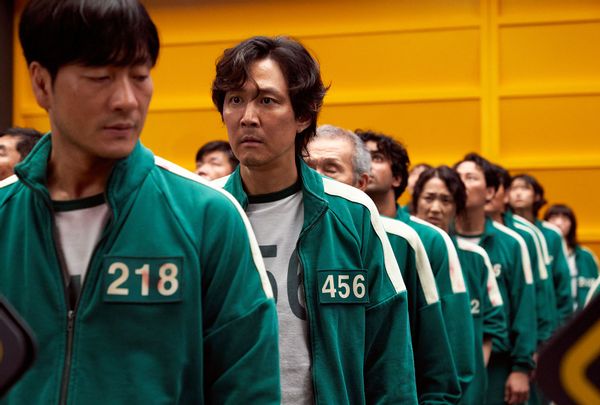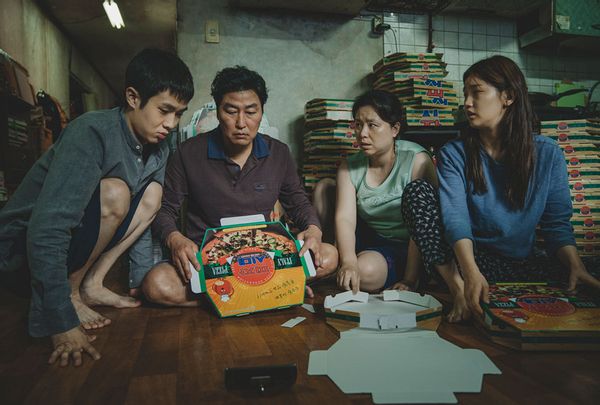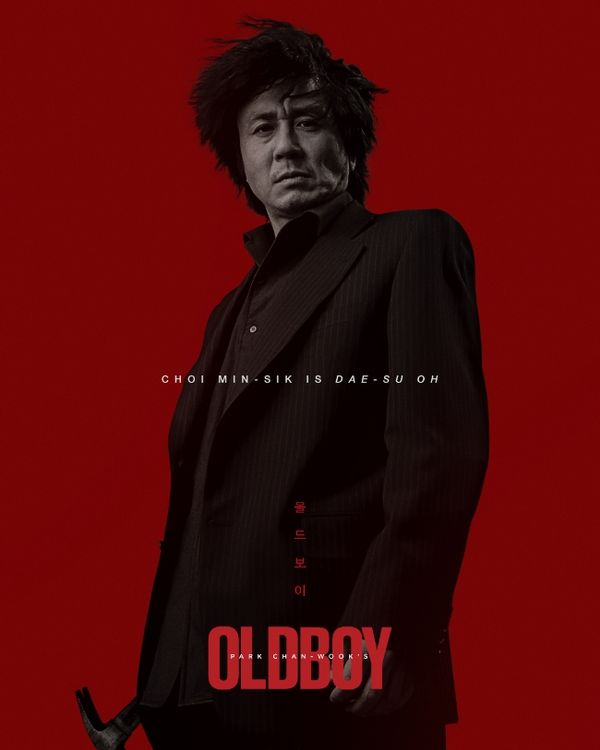
The Korean union is attempting to meet with Netflix over labor concerns that are similar to the issues of currently striking actors. This includes the topic of pay and residuals. According to the union, Netflix does not pay its Korean actors any residuals whatsoever and pays its South Korean employees significantly less than their American counterparts. Union president Song Chang-gon says that Korean actors earn less when working on Netflix productions compared to Korean shows, as they are paid per episode (beginning at $300 for each) for fewer episodes — despite the work being more labor-intensive.
The pay discrepancy is particularly foul given how much Netflix has benefited from its South Korean content. Around 60% of the platform's streamers watch Korean titles, a fact that Netflix plans to capitalize on by investing $2.5 billion for South Korean content over the next four years. This is in addition to the $500 million it invested in Korean titles in 2021 and the $700 million it invested in 2016.
"Squid Game" – the hit South Korean show that follows poor and financially challenged contestants competing in deadly children's games for the chance to win $40 million cash prize – remains the platform's most-watched show, bringing the streaming giant 4.38 million additional subscribers in its third quarter and rose revenue by 16% per The L.A. Times.
At least it made the show's creator Hwang Dong-hyuk rich, right? Wrong.
In an interview, the director revealed that his contract forfeited intellectual property and residuals, making enough "to put food on the table," but only a fraction of the wealth he garnered the platform and its executives. This means he's also unlikely to profit from the show's upcoming second season, which he never intended to create in the first place given that making the first season was so stressful he lost six teeth.

After "Squid Game," Bong Joon-Ho's "Parasite" became the next big Korean title on U.S. screens. The tragicomedy follows the Kim family, a poor and scrappy bunch who seize an opportunity to con an uber-wealthy family, the Parks, after Kim Ki-woo (Choi Woo-shik) gets a job tutoring the Parks' young daughter. But as greed and lies catch up to the families, horror ensues. When the scathing depiction of South Korean capitalism won a slew of awards (including Golden Globe and Palme d'Or), America did what America does best: make money off of it. HBO confirmed it won the rights to the movie in order to create an American TV adaption of the film in 2020.
Enter America's "Eat the rich" era. After the motion picture took home the Oscar for best picture in 2020, a slew of shows and movies released in the U.S. thereafter began to take its own shots at capitalism. Later that year, "White Lotus" began production. In 2022, "Triangle of Sadness," "The Menu" and "Glass Onion" all debuted surrounding the same theme that rich people are evil. Is it a coincidence that after the standout success of "Squid Game" and "Parasite" so many U.S. shows would portray the same message? Maybe, maybe not.

Whether or not more and more directors jumped on South Korea's anti-capitalism bandwagon, it's clear that Hollywood has capitalized off of the success of productions that touch on this. The most glaring example of this being "Squid Game: The Challenge," an upcoming reality TV show sequel to the original which not only capitalizes on the success of South Korea's hit, but also misses the point of the show: to critique the ways capitalism has pushed people to desperate places for survival. The live action remake laughs in the face of this message by turning the dystopian game show premise into reality.
Even Disney got in on this trend, releasing the surprisingly progressive "Andor." As Patrick Sproull in The Face puts it, "The fact that a company worth $203.63 billion feels comfortable parroting anti-capitalist talking points shows that something has gone seriously wrong. Anti-capitalist art is now a genre, one safe enough to be reproduced by the very people it's supposed to target."
For America to capitalize off of South Korea's onscreen struggles with capitalism is ironic considering how the U.S. played a role in creating the very economic situation the country finds itself in. Professor of economics at Lewis and Clark and author of The "Rush to Development: Economic Change and Political Struggle in South Korea,'' Martin Hart-Landsberg makes this argument, noting how the U.S. pressured South Korea to shift to a export-oriented growth strategy in place of a self-reliant economy in the mid '60s. They backed this up with financial assistance (in the vein of almost $5 billion in the eights years South Korea helped support the U.S. in the Vietnam War), as well as provided an open market for South Korean exports.
But just as Victor Frankenstein grew resentful of the product of his own making, so too did the U.S. who then had to compete with the now successful South Korean market. They proceed to bully South Korea back into an economically inferior position. In 1983, they pressed South Korea to drop its tariffs, began anti-dumping suits against their color TV exports and forced them to agree to restrictions on steel exports. When the 1997 Asian financial crisis hit South Korea, the U.S. took the opportunity to weaken them further. A team from the International Monetary Fund (IMF) was sent to Seoul to discuss a bailout package in 1997, and the U.S.'s Treasury Undersecretary, David Lipton, went with them. Uncoincidentally, the agreed-upon package was favorable to the U.S., forcing South Korea to agree to open the country's market up to foreign investors, deregulate the foreign exchange market, raise interest rates and slash labor rights in a way that allows companies more power in terminating its employees.
All this set the stage for South Korea's hypercapitalism. While the country is of course still responsible for their own actions and treatments of its workers, the U.S. has still played a significant role in manipulating this outcome. This result of which includes the current Hallyu, or Korean wave, of cultural exports like K-dramas and K-pop that have risen in popularity across the world stage, including in America. It makes sense that the country takes its shows and music so seriously, religiously churning out new pop bands (no, seriously, there are schools for it), because this provides them a hot, international commodity and lucrative market they crucially have control over.
It should come as no surprise then that the recently remastered and re-released 2003 film, "Oldboy" by Park Chan-wook, is back in theaters and absolutely killing it. According to Deadline, it slated to top $1 million in its first week back. Ironically, the gruesome revenge thriller is heralded by critics as an allegory of . . . wait for it . . . capitalism.

Just as the IMF deal sold false promises of financial freedom, Dae-su is released from his imprisonment only to find his release is part of a more elaborate and nefarious plan orchestrated by the American-educated and wealthy businessman, Lee Woo-jin (Yoo Yeon-seok). Woo-jin, who believes Dae-su spread a rumor about him having sex with his sister and thus inadvertently got her killed, has exported his imprisonment of Dae-su to a third-party company as a part of a grand plan to exact ultimate revenge.
In other words, Dae-su's bleak fate is, as Annabelle Johnston writes, "an avatar for South Korea, a nation that has been pillaged, conquered, occupied and torn apart by regimes much larger and more developed than itself for centuries." Countries like America – who unknowingly and unironically continue to rewatch – replay and repeat this exploitation again and again.







